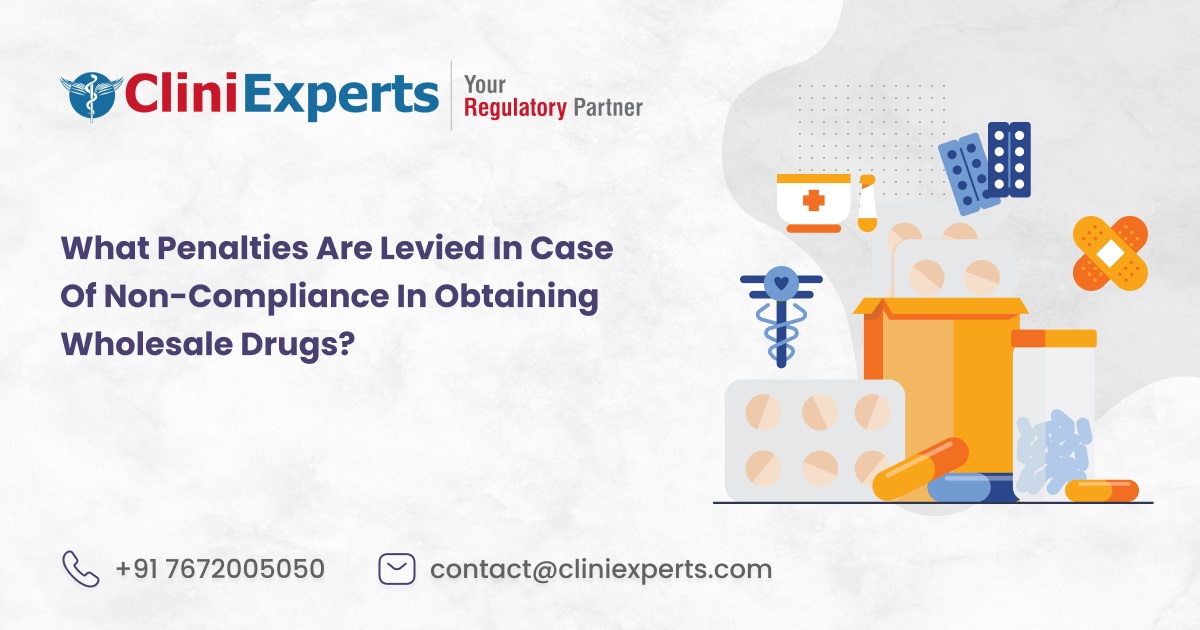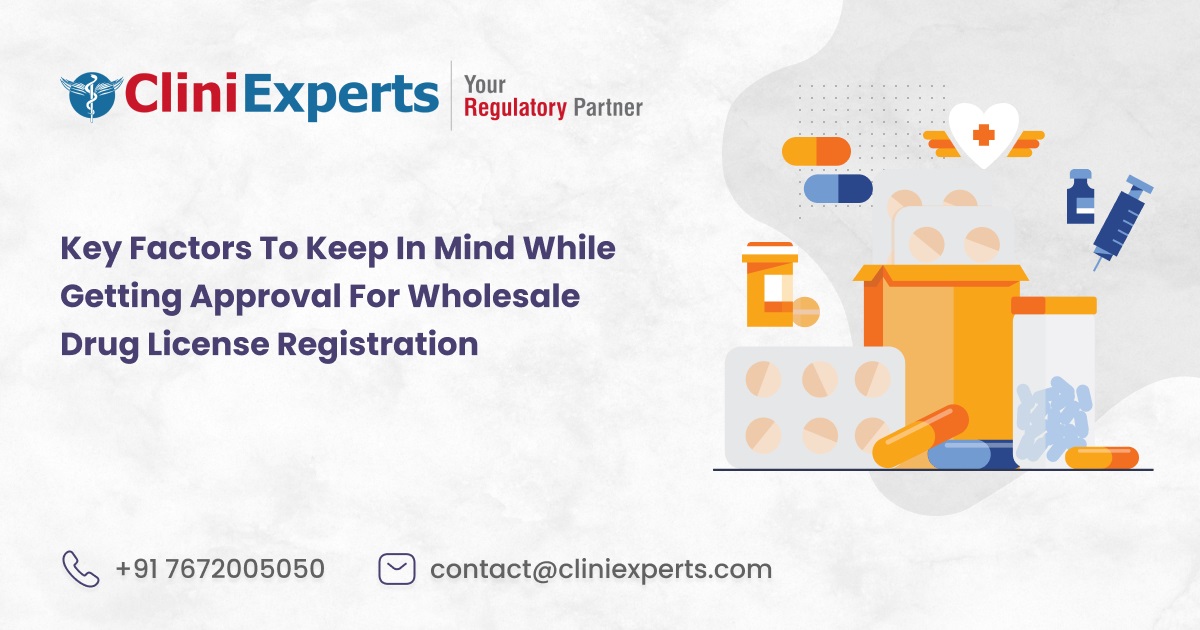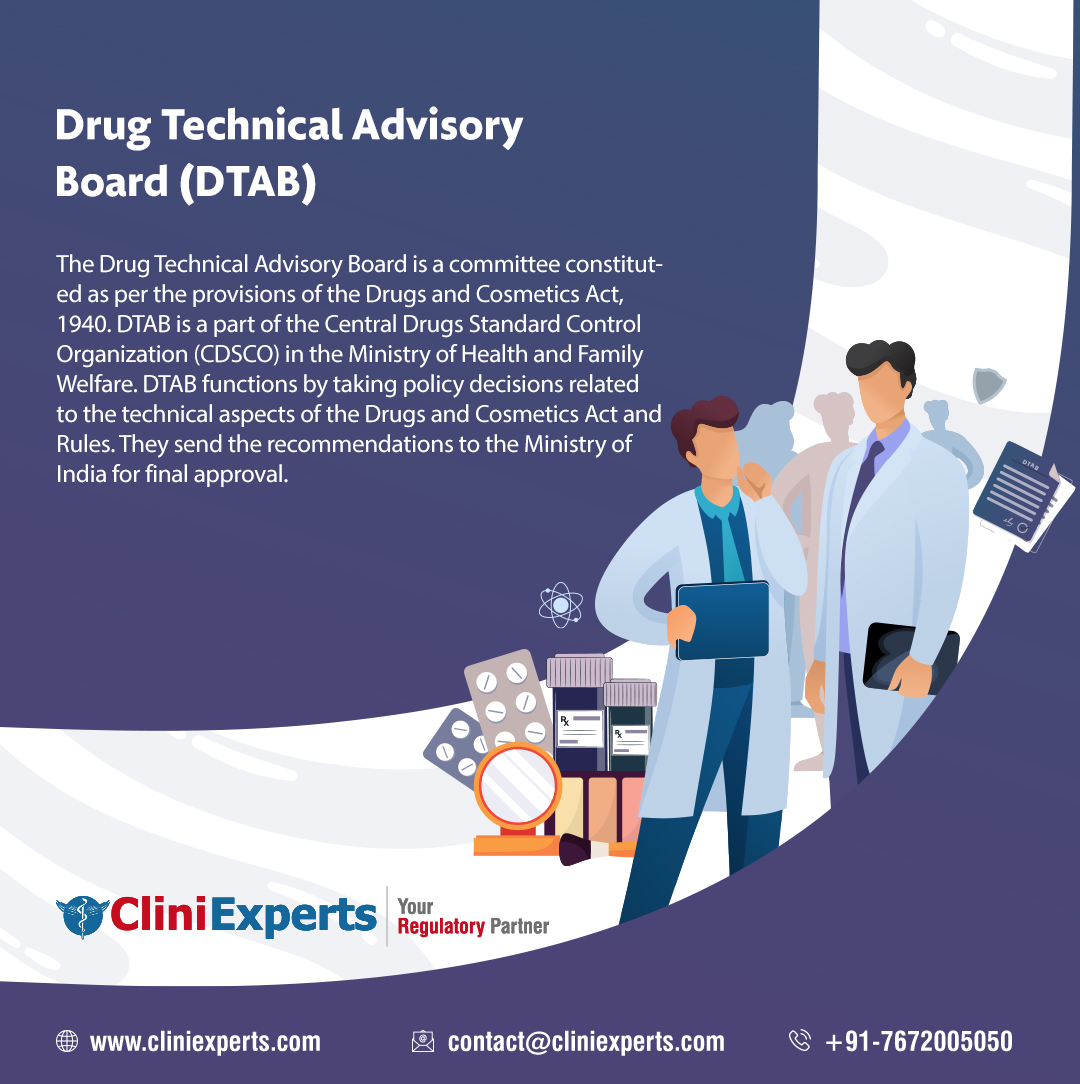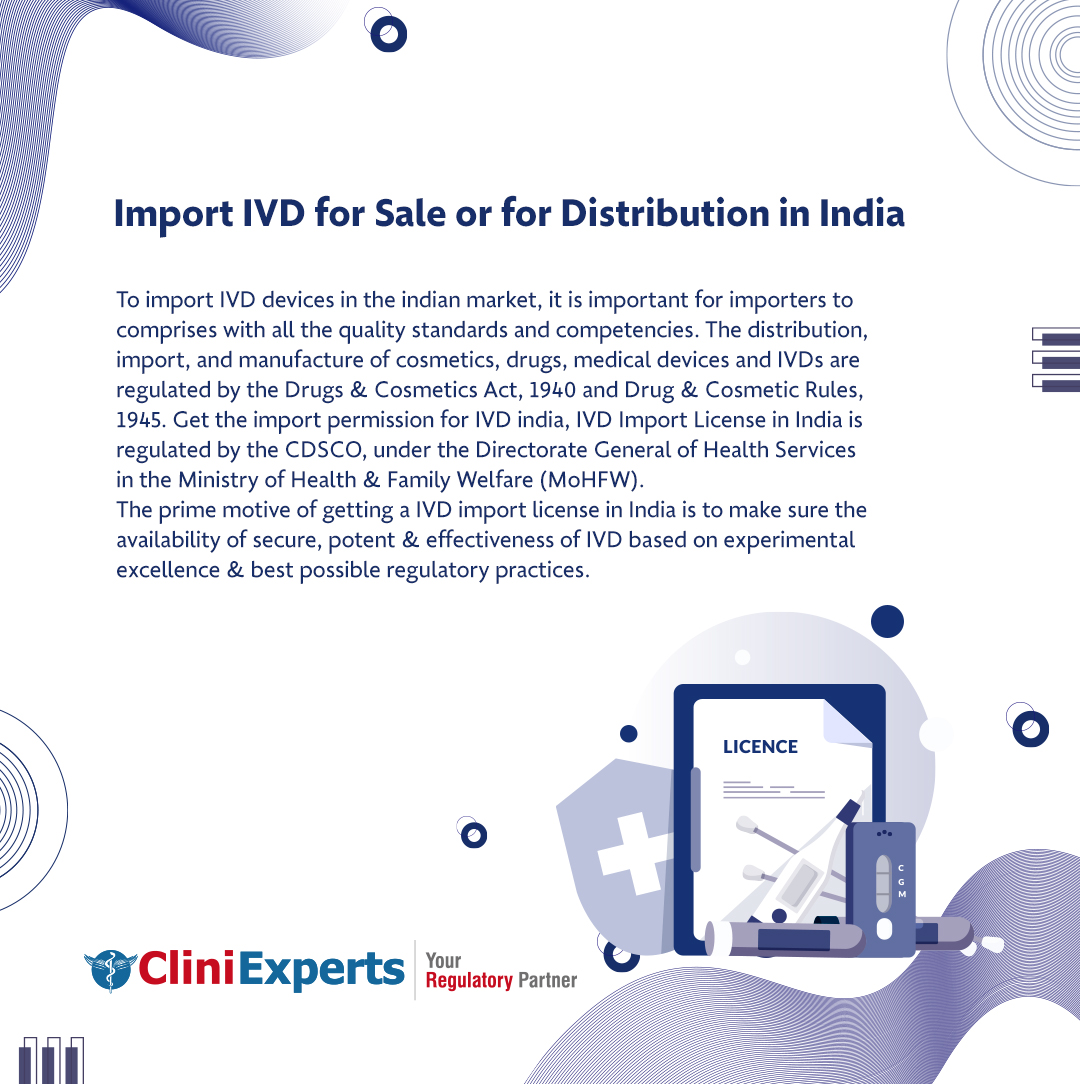
What penalties are levied in case of Non-Compliance in obtaining Wholesale Drugs?
One must obtain a drug license to launch a business selling drugs or cosmetics. No one can sell drugs or cosmetics without a drug license. The 1940 Drugs and Cosmetics Act specifies the procedure and requirements for a drug license. The Act under which the Rule is made deals with the laws pertaining to drugs and their sale or manufacture. It will be illegal to operate a pharmaceutical business without such a license. The Indian drug licensing procedure is simple but time-consuming. The Drug License Process must be followed to launch a pharmaceutical business. To start a pharmaceutical business and engage in activities related to the pharmaceutical industry, one must first obtain a license from the relevant state authority. Anyone can only begin a business directly or indirectly related to the pharmaceutical industry by obtaining a drug license. In India, failing to get a drug license can be a costly error that carries penalties and punishments. To protect the health of the intended population, regulatory bodies must make the regulations strict and ensure associated business owners follow them.
Read MoreRegistration of Foreign Food Manufacturing Facilities (ReFoM)
Registration of Foreign Food Manufacturing Facilities (ReFoM) intending to export Egg powder; Nutraceuticals; Meat & meat items, including fish, poultry & their products; Infant food
Read MoreAPI Registrations of Drugs In India
Central Drugs Standard Control Organization (CDSCO) is the regulatory body of India regulating medical devices, drugs, and cosmetics in the Indian market. The CDSCO regulates the manufacturing and import of these products to ensure that the products are safe and effective to use and do not cause any harm to the intended population. Central Drugs Standard Control Organization (CDSCO) is headed by the Drugs Controller General of India (DCGI). CDSCO regulates the manufacturing and import of API drugs in India. So, if any manufacturer or importer plans to work with API drugs, they must understand the rules and regulations they must follow. Drug and Cosmetic Act 1940 and Rules 1945 and New Drugs and Clinical Trials Rule, 2019 are the primary foundation for API drug manufacturing and import in India.
Read More
Key factors to keep in mind while getting approval for wholesale drug license registration
- A wholesale drug license is required for manufacturing, distribution, sale, or storage of drugs.
- The Drugs and Cosmetics Act, 1940 outlines the requirements to obtain a manufacturing license in India.
- The wholesale drug license has a lifetime validity and the entire licensing procedure takes 1 month to complete.

Summary Notes On DTAB (Drug Technical Advisory Board), P1988 FDC’s (Fixed Dose Combinations)
- The Drugs Controller General of India DCG(I) had taken an action to exclude certain drugs from the need for the safety and efficacy of FDC drugs licenced by the State Licensing Authority (SLAs) without approval from the DCG (I).
- The drug manufacturers who are involved in FDCs manufacturing and have licensed prior to September 1988, do not need further approval.
- As per notice dated 27-Feb-2019, DCG(I) listed 294 unapproved FDCs and issued directions for them.
- According to the DTAB report, 83 FDCs were considered rational.

Import In-vitro Diagnostic Medical Devices for Sale or for Distribution in India
To import IVD devices in the indian market, it is important for importers to comprises with all the quality standards and competencies. The distribution, import, and manufacture of cosmetics, drugs, medical devices and IVDs are regulated by the Drugs & Cosmetics Act, 1940 and Drug & Cosmetic Rules, 1945. Get […]
Read MoreRegulation/Guidelines
CPCB Alert – Timely Annual Report to be Submitted by PIBOs to Avoid Penalties
- The Central Pollution Control Board (CPCB) issued a directive alert for submission of timely annual reports by all Pollution Implementing and Beneficiary Organisations (PIBOs) to avoid any penalties.
- The CPCB extended the date for filing of Annual Reports for FY 2022-23 till 30th November 2023.
- As per EC guidelines, EC of Rs. 5,000/- shall be levied on those PIBOs who file their Annual Report by 05th December, 2023 and EC of Rs. 10,000/- shall be levied on those PIBOs who file their EC by 15th December, 2023 following which Annual Report shall be auto-filed and EC, if any, shall be levied on the concerned PIBO.
Regulation/Guidelines
Legal Implications of the CDSCO License Update for Class C and Class D Medical Devices
- The Central Drugs Standard Control Organization (CDSCO) has announced that effective from the 1st of October 2023, Class C and Class D (Non-Notified) medical devices will have complete licensing requirements.
- This update holds a lot of significance as there were no licensing requirements previously for these devices. Non-compliance or failure to follow these will affect Class C/D medical device manufacturer/importer.
- According to the new update issued by the CDSCO, all Class C and Class D medical devices must undergo the mandatory registration number process available till the 30th Sep 2023. Indian importers/foreign manufacturers must apply for the license before 30th Sep 2023 along with all the required documents given in the Medical Device Rules, 2017 to avoid interference in the supply of their medical devices across India.
- In order to apply for the Class C and Class D medical devices license, the importers/manufacturers must submit an application to the CDSCO, who will then process and approve of such applications as per the Drugs and Cosmetics Act 1940.
- A regulatory consultant like CliniExperts can act as an authorized agent and help in carrying out the import/manufacturing licensing procedures of medical devices in India.
Regulation/Guidelines
What is the purpose of CDSCO SUGAM portal registration?
- The national regulatory body for regulatory functions and processes in India goes by the name of Central Drug Standard Control Organisation (CDSCO).
- On the 14th of November 2015, SUGAM, an online e-Governance portal was launched by the CDSCO to carry out various CDSCO functions related to the approval and licensing of drugs, and cosmetic.
- It is a single interface which has a wide database of all the licenses and approvals granted by state drug control organisations across India.
- The purpose of the SUGAM online portal is for manufacturers and Importers across India to apply for their respective licenses, NOCs, registration certificates, approvals, and permissions.
- It helps in establishing transparency in the online application process as applicants can track them and respond to queries asked by the CDSCO.
- It strives to provide simplicity and reliability as the process of granting online permissions and generating MIS reports is made easier for the CDSCO officials through SUGAM.
- This portal has made it easier for manufacturers, importers, and businesses in India to have an interface for all their licensing and regulatory needs.
